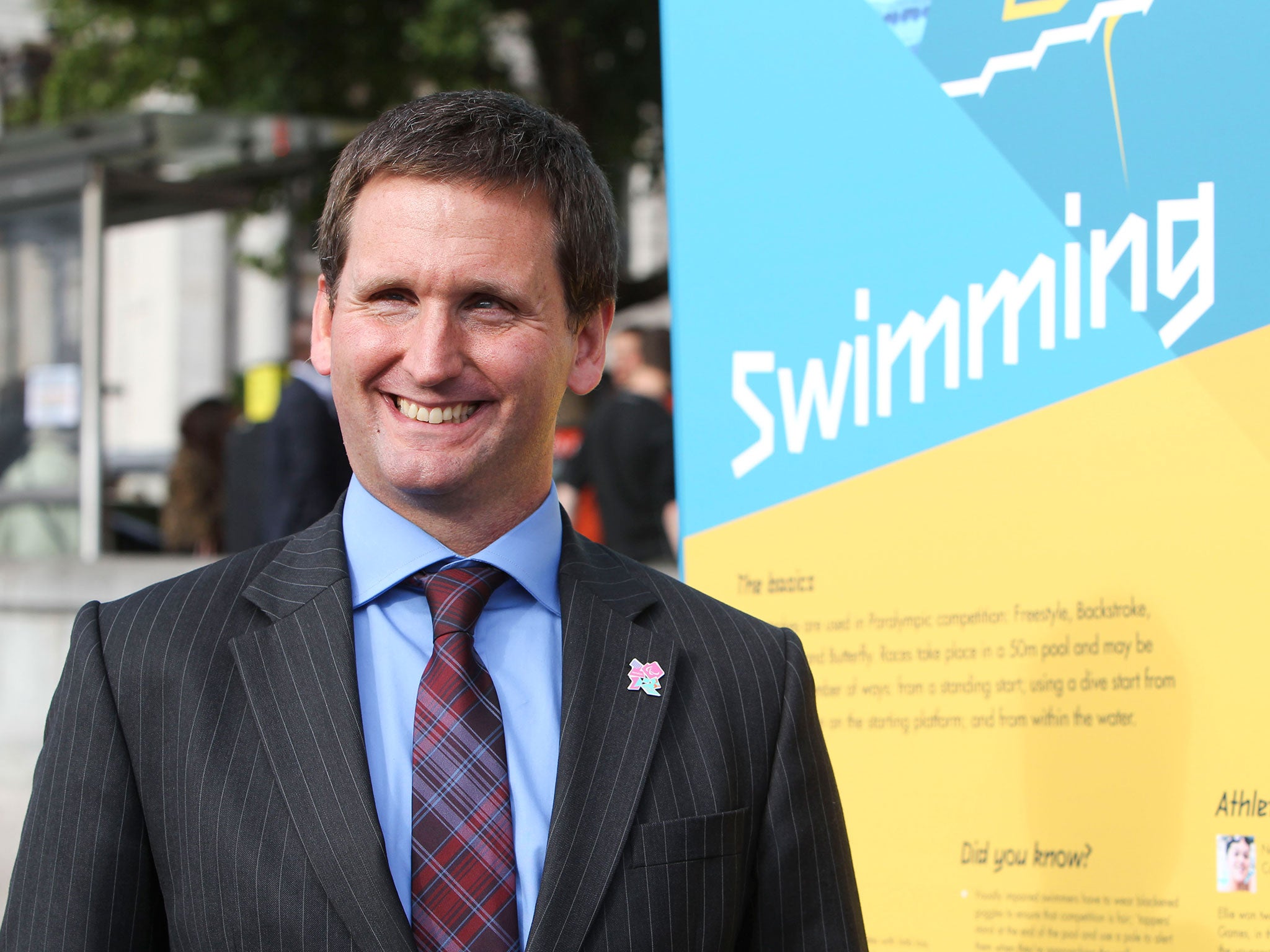Disabled people risk becoming more invisible in Britain, says Paralympian
Lord Holmes says more must be done to stop the UK's growing number of disabled and older people being left behind

Disabled people risk becoming more invisible in British society despite promises for improvement in how they are treated, Britain’s most successful Paralympic swimmer has said.
In a landmark speech to mark the UN International Day of Persons with Disabilities, Equality and Human Rights Commissioner and nine-time Paralympic gold medallist Lord Holmes said that more must be done to stop Britain’s growing number of disabled and older people being left behind and excluded from society.
Lord Holmes, who went blind overnight at the age of 14, holds nine gold medals, five silvers and one bronze in Paralympic swimming. He was appointed to the House of Lords in 2013 and works as a non-executive director at the EHRC.
Speaking in Parliament, he said: “Three years ago, London 2012 was seen as a turning point for the visibility and inclusion of disabled people in our society, and with an expected legacy of improvements. Since then, Britain has made progress on many fronts but there is increasing evidence that disabled and older people are being locked out or left behind.”
“While we’ve seen greater cultural understanding and acceptance of disabled people’s rights, these positive changes are masking increased social isolation for many disabled and older people as Britain’s society and economic life undergoes significant structural changes.”
In July last year, the Department for Work and Pensions reported that nearly 70 per cent of the British public felt attitudes towards disabled people had improved since London 2012. But according to the EHRC, they are still largely underrepresented in the media and in many public and senior roles.
Speaking to the Independent, former wheelchair racer and parliamentarian Baroness Tannie Grey-Thompson said: “Attitudes towards Paralympians have definitely changed for the better, but I don’t think it’s changed the wider issue around how disabled people are perceived. “
She added: “In many ways I think the attitude is more patronising towards disabled people than it was 15 years ago. There’s still an attitude that they should be treated as less important, and a lack of expectation on their involvement in society which can be self-fulfilling.”
The EHRC noted that as more public and transactional services move online, disabled people – who are less likely to have internet access – are losing out as potential customers and often have to pay more for the technology to access these services.
According to an Ipsos Mori report in 2013, around 30% of the disabled adult population (3.5 million people) have never used the internet, compared to 7% of non-disabled people, and only 67% of disabled people have access to a computer compared to 86% of able-bodied people.
Lord Holmes, who was appointed Director of Paralympic Integration for London 2012, said: “Far from enjoying increased visibility and being able to participate more fully in every aspect of life, there is a risk that disabled people will become more invisible as both consumers and participants, with organisations losing out on their valuable experiences and custom. We must all step up our collective efforts to tackle the virus of loneliness and social isolation if we are to avoid Britain becoming a more segregated and divided society."
Baroness Grey-Thompson said: “We do need more representation of people with a range of disabilities in the media and in senior job roles, but it’s got to be a whole cultural change and that takes time.”
Join our commenting forum
Join thought-provoking conversations, follow other Independent readers and see their replies
Comments
Bookmark popover
Removed from bookmarks